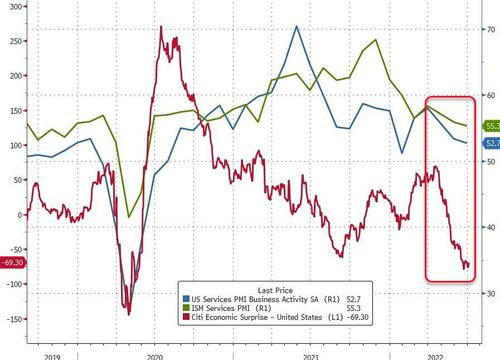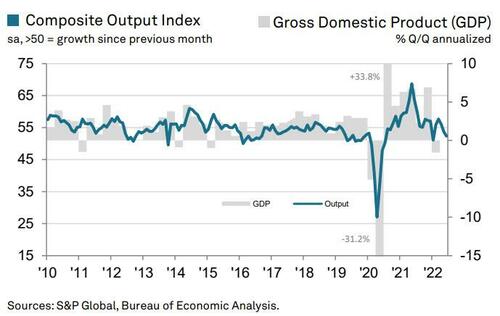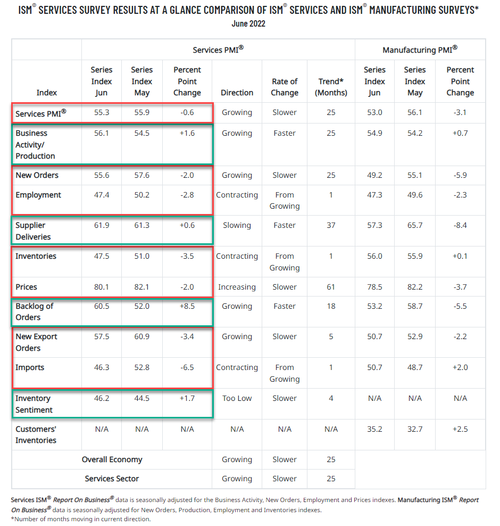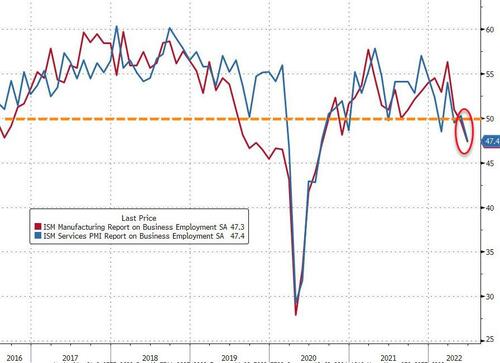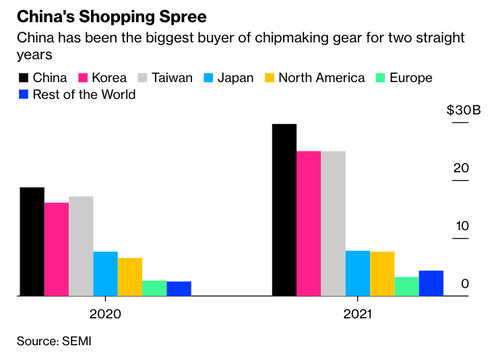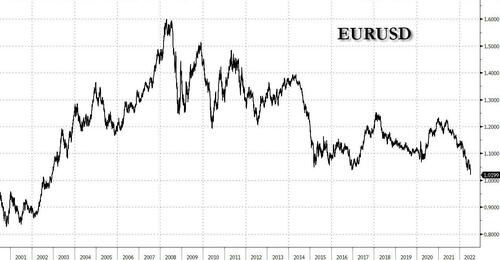Americans’ confidence in major institutions like Congress, the criminal justice system, and the media has eroded in the past year, according to an annual Gallup poll. Of the 16 institutions included in the survey, Gallup reports that not a single one saw an increase in the number of respondents who say they “trust” that institution. Some of the declines, meanwhile, are quite striking. Just 23 percent of Americans say they trust the presidency, down 15 points from last year’s poll. The Supreme Court saw an 11-point drop in trust, from 36 percent to 25 percent, this year (and the survey was taken before the recent Dobbs abortion ruling). Congress somehow managed to decline a bit further, falling from 12 percent to just 7 percent.
Even institutions that most Americans continue to trust, like small businesses (68 percent) and the military (64 percent), saw slight declines in this year’s poll. Public schools, technology companies, and the media also lost trust with Americans this year, though not as dramatically as the more explicitly political institutions.
Democrats’ average trust in all 16 institutions fell by four points and Republicans’ average trust fell by five points. It’s the continuation of a long-running trend, though one that seems to have accelerated in the past two years—perhaps due to the number of institutions that had less-than-adequate responses to the pandemic. 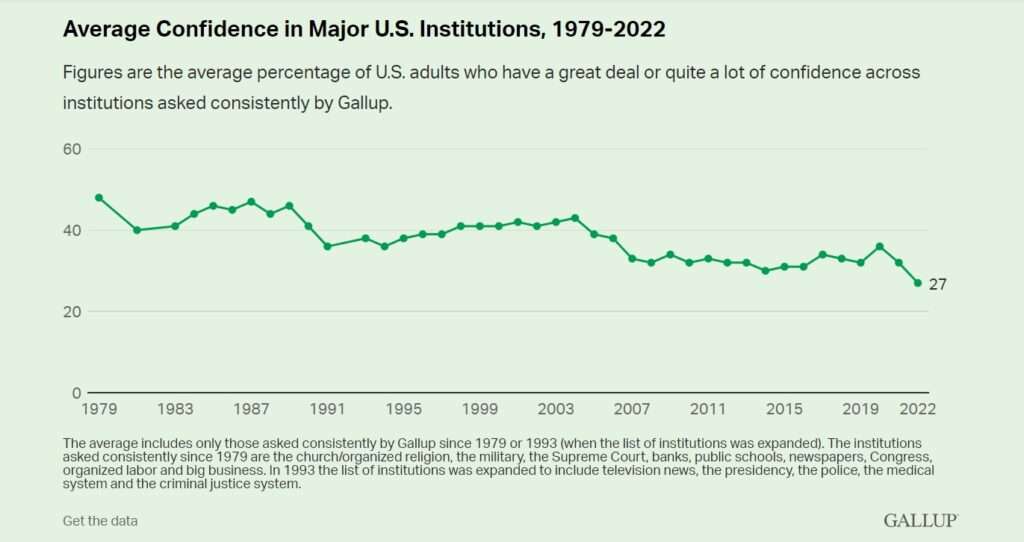
“Notably, confidence in the major institutions of the federal government is at a low point, at a time when the president and Congress are struggling to address high inflation, record gas prices, increased crime, and gun violence, continued illegal immigration, and significant foreign policy challenges from Russia and China,” summarizes Gallup senior editor Jeffrey M. Jones.
“We don’t believe in anything any more,” writes CNN’s Chris Cillizza, who argues that declining trust in institutions shows how “a void has been created, which has led to a deep skepticism coursing through our culture.”
But that seems like a backward interpretation of what’s going on. Doesn’t it seem more likely that fewer Americans trust institutions—particularly government institutions, ranging from Congress to public schools—because those institutions have shown they do not deserve to be trusted?
Government institutions are not the ancient deities of Neil Gaiman’s imagination—they do not draw their power from the number of people who worship them. Indeed, the causality runs exactly in the opposite direction. Governments that accomplish useful purposes without causing too many new problems are rewarded with civic trust. It would be foolish for people to keep blindly trusting institutions that have repeatedly failed.
Trust must be earned, and institutions that earn trust are those that deliver on their promises. Amazon has an approval rating many times higher than Congress in no small part because people know that they can trust it to deliver products at low cost and on time.
The way to rebuild trust in our failing institutions, then, is pretty obvious. Instead of taking on new tasks for which governments are ill-suited—like the redistribution of resources or the imposing of virtue on society, as many on the left and right would like—those institutions should focus on doing the things they were created to do. Congress should balance the budget. The media should inform, not inflame. Public schools should educate children, not lock them out for two years.
Trust is earned by being accountable and functional. No wonder government institutions are polling so poorly.
FOLLOW-UP
The 21-year-old man, Robert E. Crimo III, accused of killing seven people and wounding dozens more at a Fourth of July parade in the Chicago suburb of Highland Park, Illinois, was charged Tuesday with seven counts of first-degree murder. Despite a history of promising violent action—police visited Crimo in 2019 after he threatened to kill himself, and later seized his knife collection after a family member reported other threats—Crimo was able to legally purchase the guns he allegedly used in Monday’s attack.
Two years ago, Illinois instituted a so-called “red flag” law along the lines of which President Joe Biden and a bipartisan group of lawmakers have called for passing at the federal level. The law allows police to confiscate weapons from otherwise law-abiding gun owners who are determined to be a threat to themselves or others.
In this case, like in many others, the red flag law on the books seems to have failed.
FREE MINDS
Dolly the sheep, the world’s first successfully cloned animal, was born 26 years ago this week. But the technology remains ethically fraught and scientifically difficult, even though the potential to use cloning to save endangered species (or resurrect extinct ones) remains tantalizing.
Now there might be a breakthrough, reports The Daily Beast‘s Neel V. Patel:
In a new study published in Nature Communications, Japanese researchers have outlined a new technique used to clone mice from freeze dried skin cells for the first time ever. The new technique paves the way for facilities around the world (even in poorer communities) to engage in what’s called biobanking: the storage of cells from certain animal species so they may be cloned later on should their numbers dwindle and their gene pools suffer from increased inbreeding.
As part of the study, the researchers freeze-dried skin cells from mouse tails and stored them away for nine months before attempting to make clones from them. Though the freeze-drying outright killed the cells, the researchers did some tinkering and learned they could still create viable cloned embryos by inserting the dead cells into mouse eggs where the nuclei were already removed.
Scientists were about to produce a total of 75 cloned mice using the new technique. Success rates ranged from 0.2 percent to 5.4 percent in various tests—not great, but a promising start—and the cloned mice were able to successfully breed with noncloned mice.
FREE MARKETS
Oil prices fell sharply on Wednesday, tumbling below $100 per barrel for the first time in months. Let’s start with the good news, which is that falling oil prices (if they remain at these levels) will likely translate into lower prices at the gas pump in the near future:
The bad news, however, is that falling oil prices could be yet another signal of a coming recession. A recession would quell demand for oil and gas, canceling out the higher prices created by the war in Ukraine’s effect on supply, The Wall Street Journal explains:
The war shows no immediate signs of winding down, but traders’ attention is shifting to the possibility that a downturn in economic growth could cool demand for fuel. Consumer spending and industrial orders showed signs of slowing in data released last week, underscoring investors’ building concerns about the possibility of a recession.
Maybe the White House can find some of those Bush-era “Mission Accomplished” banners in a box in the basement?
QUICK HITS
• The Food and Drug Administration has suspended its ban on Juul vaping products until the company’s lawsuit challenging the ban can be heard in court.
• British Prime Minister Boris Johnson could be on his way out after two senior ministers resigned and said they’d lost confidence in Johnson’s leadership.
• How the overturning of Roe v. Wade could shake up America’s established political alliances.
• Is artificial intelligence going to be totalitarian?
• Never talk to the FBI give the FBI personal information about your children:
The post Americans' Trust in Government Institutions Hits a New Low appeared first on Reason.com.
from Latest https://ift.tt/hsfpXjl
via IFTTT

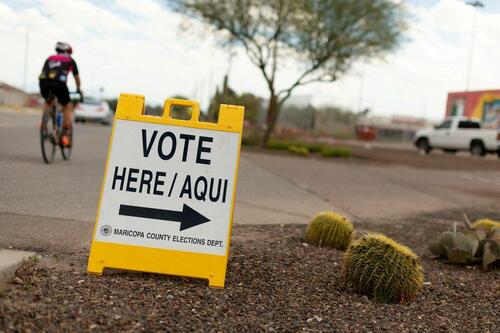

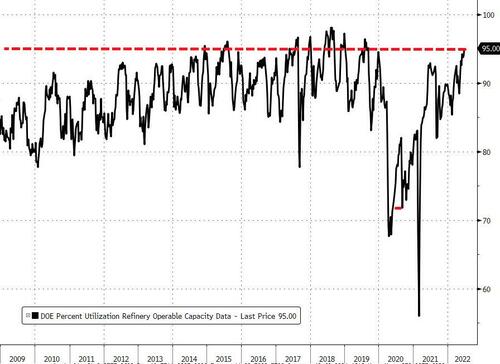
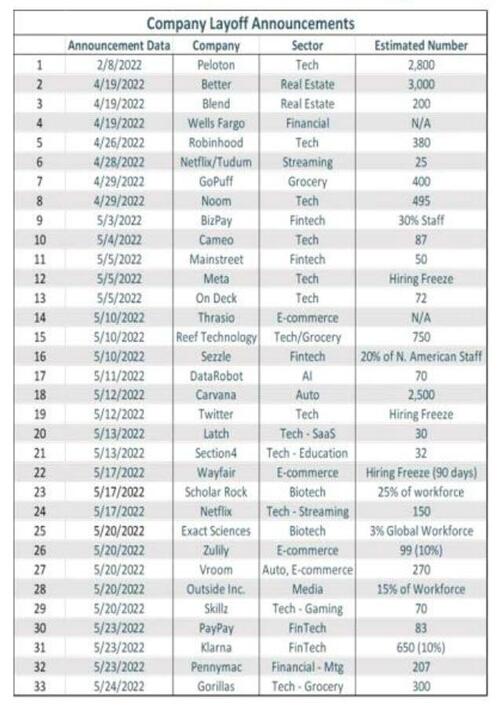
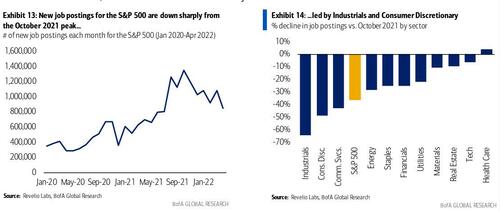

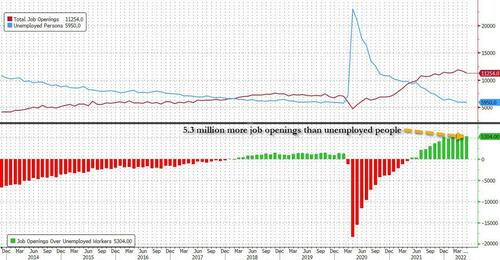
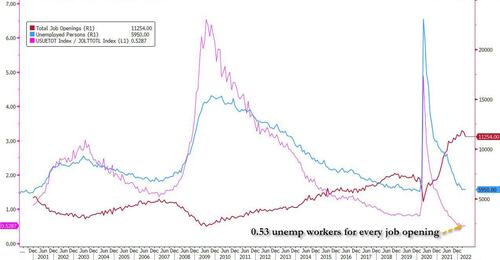
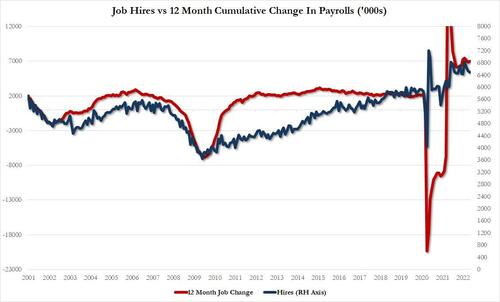
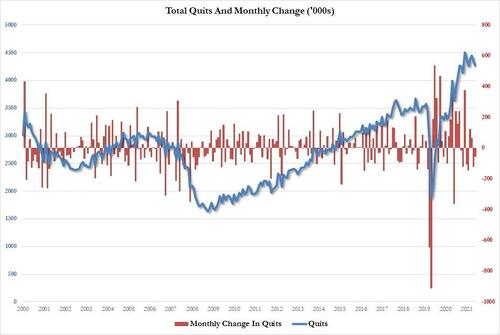

 The Norwegians did not allow Russian cargoes to Svalbard: food, building materials, equipment for the workers’ settlements. According to the treaty of 1920, Russia agreed to recognize Svalbard as Norwegian, but received special economic rights in the archipelago.
The Norwegians did not allow Russian cargoes to Svalbard: food, building materials, equipment for the workers’ settlements. According to the treaty of 1920, Russia agreed to recognize Svalbard as Norwegian, but received special economic rights in the archipelago. 


 (@AZmilitary1)
(@AZmilitary1) 
